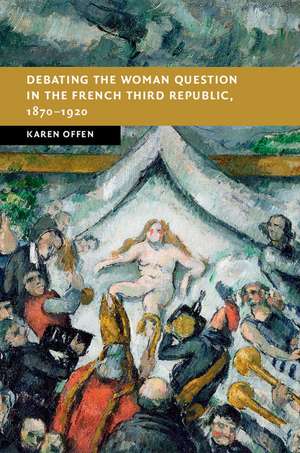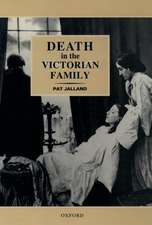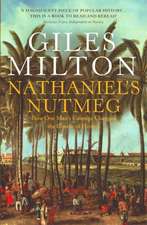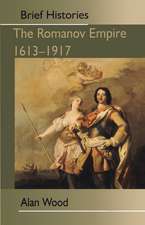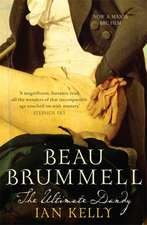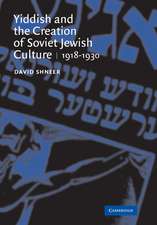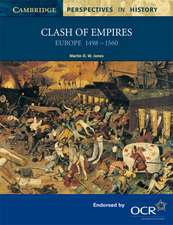Debating the Woman Question in the French Third Republic, 1870–1920: New Studies in European History
Autor Karen Offenen Limba Engleză Hardback – 10 ian 2018
| Toate formatele și edițiile | Preț | Express |
|---|---|---|
| Paperback (1) | 288.81 lei 6-8 săpt. | +61.92 lei 6-12 zile |
| Cambridge University Press – 2 dec 2020 | 288.81 lei 6-8 săpt. | +61.92 lei 6-12 zile |
| Hardback (1) | 453.32 lei 38-45 zile | |
| Cambridge University Press – 10 ian 2018 | 453.32 lei 38-45 zile |
Din seria New Studies in European History
-
 Preț: 180.06 lei
Preț: 180.06 lei -
 Preț: 237.92 lei
Preț: 237.92 lei -
 Preț: 262.09 lei
Preț: 262.09 lei -
 Preț: 169.70 lei
Preț: 169.70 lei -
 Preț: 177.91 lei
Preț: 177.91 lei -
 Preț: 238.02 lei
Preț: 238.02 lei -
 Preț: 398.41 lei
Preț: 398.41 lei -
 Preț: 208.49 lei
Preț: 208.49 lei - 9%
 Preț: 592.60 lei
Preț: 592.60 lei -
 Preț: 164.17 lei
Preț: 164.17 lei -
 Preț: 207.55 lei
Preț: 207.55 lei -
 Preț: 422.78 lei
Preț: 422.78 lei -
 Preț: 393.37 lei
Preț: 393.37 lei - 11%
 Preț: 686.73 lei
Preț: 686.73 lei -
 Preț: 271.17 lei
Preț: 271.17 lei -
 Preț: 324.59 lei
Preț: 324.59 lei - 11%
 Preț: 684.21 lei
Preț: 684.21 lei -
 Preț: 416.01 lei
Preț: 416.01 lei -
 Preț: 334.46 lei
Preț: 334.46 lei - 11%
 Preț: 686.56 lei
Preț: 686.56 lei -
 Preț: 321.37 lei
Preț: 321.37 lei -
 Preț: 333.70 lei
Preț: 333.70 lei -
 Preț: 389.95 lei
Preț: 389.95 lei -
 Preț: 377.07 lei
Preț: 377.07 lei -
 Preț: 287.54 lei
Preț: 287.54 lei - 14%
 Preț: 671.42 lei
Preț: 671.42 lei -
 Preț: 277.98 lei
Preț: 277.98 lei -
 Preț: 410.11 lei
Preț: 410.11 lei -
 Preț: 429.87 lei
Preț: 429.87 lei - 14%
 Preț: 858.92 lei
Preț: 858.92 lei -
 Preț: 413.36 lei
Preț: 413.36 lei -
 Preț: 314.65 lei
Preț: 314.65 lei - 14%
 Preț: 675.80 lei
Preț: 675.80 lei -
 Preț: 390.37 lei
Preț: 390.37 lei - 11%
 Preț: 684.21 lei
Preț: 684.21 lei - 11%
 Preț: 534.70 lei
Preț: 534.70 lei - 14%
 Preț: 697.61 lei
Preț: 697.61 lei
Preț: 453.32 lei
Nou
Puncte Express: 680
Preț estimativ în valută:
86.80€ • 90.38$ • 72.01£
86.80€ • 90.38$ • 72.01£
Carte tipărită la comandă
Livrare economică 10-17 februarie
Preluare comenzi: 021 569.72.76
Specificații
ISBN-13: 9781107188044
ISBN-10: 1107188040
Pagini: 710
Dimensiuni: 158 x 235 x 39 mm
Greutate: 1.11 kg
Editura: Cambridge University Press
Colecția Cambridge University Press
Seria New Studies in European History
Locul publicării:New York, United States
ISBN-10: 1107188040
Pagini: 710
Dimensiuni: 158 x 235 x 39 mm
Greutate: 1.11 kg
Editura: Cambridge University Press
Colecția Cambridge University Press
Seria New Studies in European History
Locul publicării:New York, United States
Cuprins
General introduction: 'what do women want?' and quotations; Part I. Familiarization: Romance with the Republic, 1870s–1889: 1. Relaunching the Republican campaign for women's rights: 2. Educators, medical and social scientists, and population experts debate the woman question, 1870–1889; 3: The politics of the family, women's work, and public morality, 1870–1890; 4. The revolutionary centennial: promoting women and women's rights at the 1889 International Exposition in Paris; Part II. Encounter: the Third Republic Faces Feminist Claims, 1890–1900: Quotations and introductory remarks; 5. The birth and 'take-off' of feminism in republican France; 6: Rights or protection for working women?; 7. Must maternity be women's form of patriotism? 8. The new century greets the woman question, 1900; Part III. Climax: Mainstreaming the Woman Question, 1901–1914: Quotations and introductory remarks; 9. Building a force to reckon with the Republic: The Conseil National des Femmes Françaises and its allies, 1900–1914; 10. Defining, historicizing, contesting, and defending feminism: early 20th century developments; 11. Refocusing the state: depopulation, maternity, and the quest for a woman-friendly state; 12. Emerging labor issues: equal pay for equal work, travail à domicile, and women's right to work; 13. 'The alpha and omega of our demands' – the women's suffrage campaigns heat up, 1906–1914; Part IV. Anti-Climax: the Great War and its Aftermath: Quotations and introductory remarks; 14. The Great War and the woman question; 15. 'Half the human race': epilogue and conclusion; Afterword; Appendix: important dates for the woman question debates; Index.
Recenzii
'No one has done more over the past forty years to establish women's history in the scholarship of the French Third Republic than Karen Offen. Now, in Debating the Woman Question, we have her chef d'oeuvre. It was worth the wait: a deeply thought-out analysis of many sides of the 'woman question' from maternity through education to religion and economics. It is a must-read for anyone interested in modern France.' Steven C. Hause, Professor Emeritus, Washington University, St. Louis and University of Missouri, St. Louis
'This is a brilliant reconstruction and analysis of eight decades of heated quarrels in which feminists, female as well as male, talked back to anti-feminists, contesting male authority, in France as well as in other francophone and neighboring countries. A fascinating wealth of sources, many of them unknown heretofore, inform and contextualize the analysis which leads up to Simone de Beauvoir's The Second Sex and will certainly arouse important scholarly debates.' Gisela Bock, Freie Universität Berlin
'The work of a celebrated pioneer in the history of women, Karen Offen's much anticipated history of the woman question in France, is a deeply researched, erudite study of the multifaceted debates that engaged women and men across the political spectrum during the first fifty years of the Third Republic. A variety of topics emerged: the intelligence, nature, duties, rights, and other characteristics of women that qualified them for or disqualified them from full citizenship and public responsibility. The rich debate plus the engaging cast of characters should finally discredit the cliche that French women thinkers and activists were less evolved than feminist activists elsewhere. Given the widening interest in feminism today, Offen's incomparable scholarship is a foundational resource.' Bonnie G. Smith, Rutgers University, New Jersey
'It is difficult to convey how impressive Offen's two books are, and this summary cannot do justice to them. There is no historian better versed in the intricacies of the women question in France and the breadth of the scholarship on display is breathtaking. Offen also writes beautifully. The prose is clear and lucid, and every chapter demonstrates the depth of her knowledge.' Christine Adams, H-France
'One finishes reading Offen's books in deep gratitude for the monumental labor that she invested in writing them. Thanks to the author's sustained, forthright pursuit of this new narrative in French history, many more topics now deserve further study … what elements of France's specificity in the contested woman question contributed to the country's slow, troubled modernization? What role, if any, did the debate have in France's overseas territories where race and ethnicity were also at play, especially in the interwar period? Such queries naturally arise from Offen's magisterial work, its shrewd insights and compelling detail …' James Smith Allen, The Journal of Modern History
'This is a brilliant reconstruction and analysis of eight decades of heated quarrels in which feminists, female as well as male, talked back to anti-feminists, contesting male authority, in France as well as in other francophone and neighboring countries. A fascinating wealth of sources, many of them unknown heretofore, inform and contextualize the analysis which leads up to Simone de Beauvoir's The Second Sex and will certainly arouse important scholarly debates.' Gisela Bock, Freie Universität Berlin
'The work of a celebrated pioneer in the history of women, Karen Offen's much anticipated history of the woman question in France, is a deeply researched, erudite study of the multifaceted debates that engaged women and men across the political spectrum during the first fifty years of the Third Republic. A variety of topics emerged: the intelligence, nature, duties, rights, and other characteristics of women that qualified them for or disqualified them from full citizenship and public responsibility. The rich debate plus the engaging cast of characters should finally discredit the cliche that French women thinkers and activists were less evolved than feminist activists elsewhere. Given the widening interest in feminism today, Offen's incomparable scholarship is a foundational resource.' Bonnie G. Smith, Rutgers University, New Jersey
'It is difficult to convey how impressive Offen's two books are, and this summary cannot do justice to them. There is no historian better versed in the intricacies of the women question in France and the breadth of the scholarship on display is breathtaking. Offen also writes beautifully. The prose is clear and lucid, and every chapter demonstrates the depth of her knowledge.' Christine Adams, H-France
'One finishes reading Offen's books in deep gratitude for the monumental labor that she invested in writing them. Thanks to the author's sustained, forthright pursuit of this new narrative in French history, many more topics now deserve further study … what elements of France's specificity in the contested woman question contributed to the country's slow, troubled modernization? What role, if any, did the debate have in France's overseas territories where race and ethnicity were also at play, especially in the interwar period? Such queries naturally arise from Offen's magisterial work, its shrewd insights and compelling detail …' James Smith Allen, The Journal of Modern History
Notă biografică
Descriere
A magisterial reconstruction and analysis of the heated debates around the 'woman question' during the French Third Republic.
